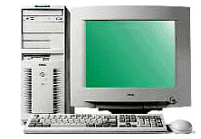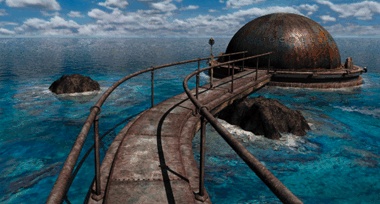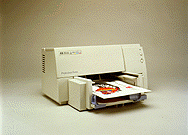Internet Basics for ESL Students
Lesson 1
Basic Computer Terms and the History of the Internet
key vocabulary: keyboard, mouse, printer, click,
double click, cursor, CD-ROM, boot, re-boot, desktop, software.
Dictionary
| Dialogue 1: Buying your first computer. |

|
|
What is a computer? A dictionary might say computers are electronic things for storing and processing data. There are many kinds: mainframes, desktops, laptops, etc. so let's talk about Personal Computers - PCs for short.
What does a common PC have? Most home or office computers will have a CPU (the Central Processing Unit), a keyboard that you type on, a mouse that you use to control the cursor on your screen, and a monitor that you read. Many PCs now have speakers for sound and printers.
Questions:
1) What is a computer?
2) Do you have a computer? What kind?
3) What does your computer have?
4) What kind of software do you use?
| Dialogue 2: Printer problems |
Lecture: the roots of the Internet: where it is now, what the future might bring.
Many people have heard the word "Internet", but what is it? A computer network is a group of computers linked together so they can share data. The Internet is the linking of the thousands of computer networks around the world. It started in the 1970s in the US as a military program. Today, more than 120 countries and 60 million people use the Internet.
| Dialogue 3: CD-ROMs and games |

|
|
Activity
Introduction to the Computer lab and using a web browser.a. turning a computer on and off - using the keyboard and mouse
1. demonstrate the mouse clicks.
2. keyboard secrets.
b. Introduction to the resouces page
c. starting Netscape
concepts: homepage, World Wide Web (WWW), browser, address (URL), http, scrollbar, back button, forward button, home
